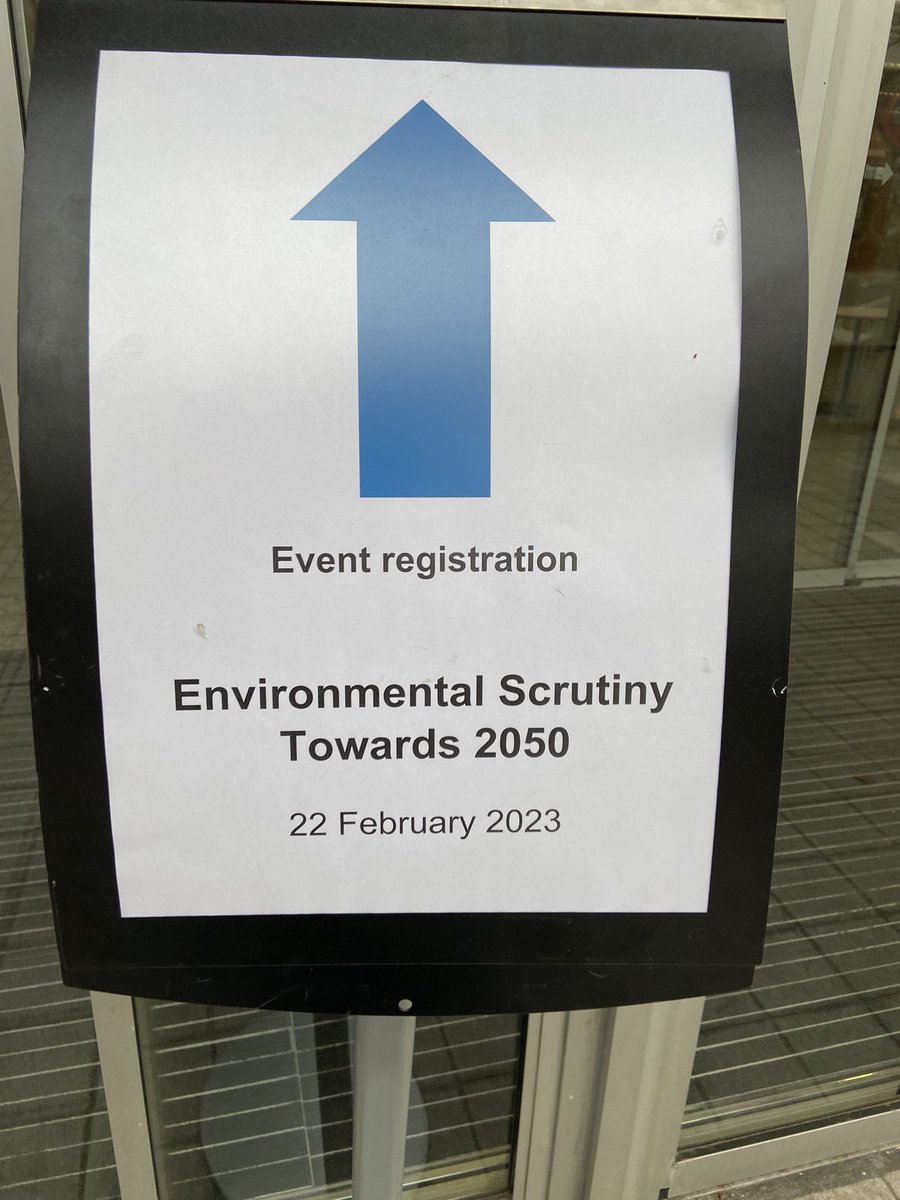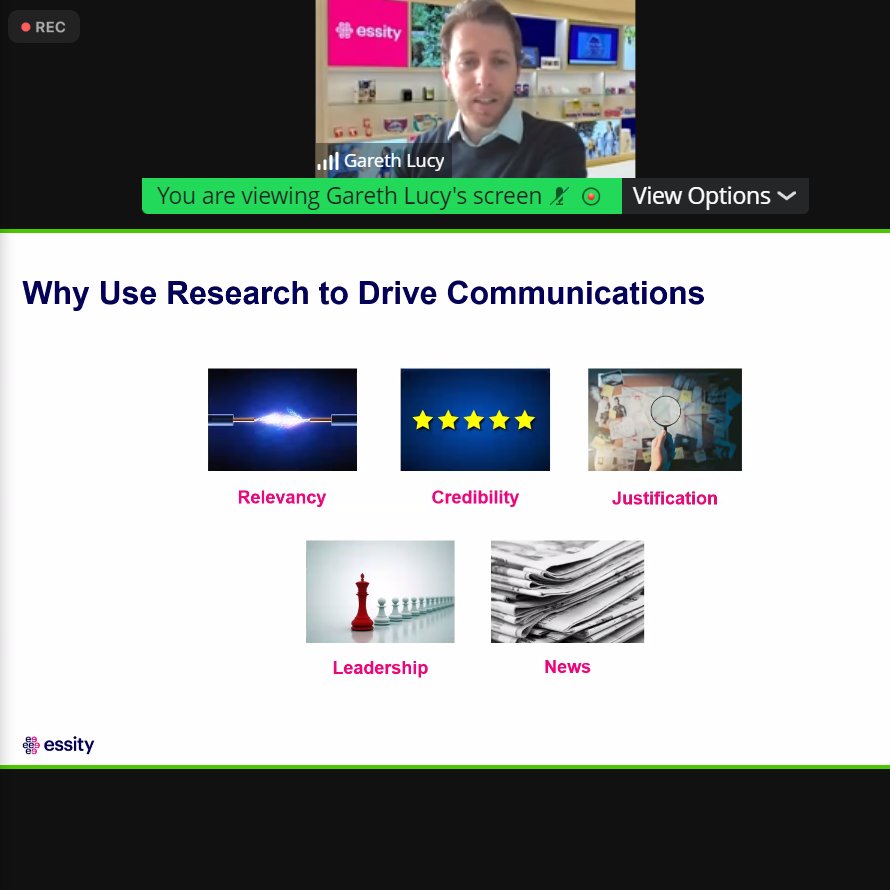
Looking forward to what should be an interesting debate on the importance of prioritising prevention in our policymaking #BuildingResilience
https://twitter.com/HealthFdn/status/1628666030569492482
In her opening statement @JoBibbyTHF highlights the timeliness of today's webinar, observing that the impact of health inequalities in the UK has been an "almost daily" subject in the media headlines #BuildingResilience
Next, @davidfinchthf presents his research on making the economic case for prevention. Notes that, even prior to the #Coronavirus pandemic, life expectancy gains had begun to stall & working age adults reporting ill health growing, especially mental health #BuildingResilience 



Finch says this could be explained by the impact of government austerity, and the stagnation of real-time wages. Says that this highlights the important role that businesses & civil society, as well as Govt can play in promoting good health #BuildingResilience
Finch also notes that there is significant health variations between the regions, with people in the North East generally experiencing worser health than those in the East of England #BuildingResilience
Similarly, Finch notes certain BAME groups experience poorer health than their white counterparts. Geographically, there is also significant ill health in areas of greater deprivation than in more affluent neighbourhoods #BuildingResilience
Looking at the economic impact, Finch says that ill health is now the biggest reason for people between the ages of 55 - 69 are becoming "economically inactive" #BuildingResilience
Finch argues that the government has failed to prioritise keeping people healthy in the first place, with budget cuts not just to #Health & #SocialCare but also other areas such as housing & transport. Does a deep dive on children's services to highlight this #BuildingResilience 

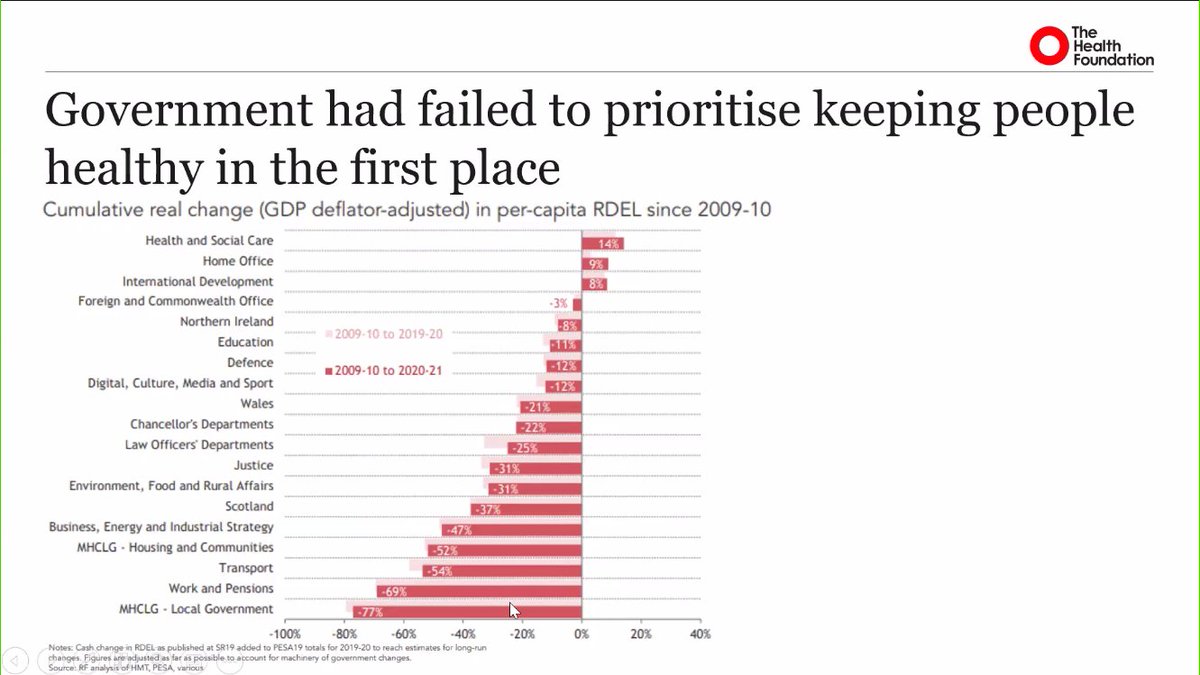
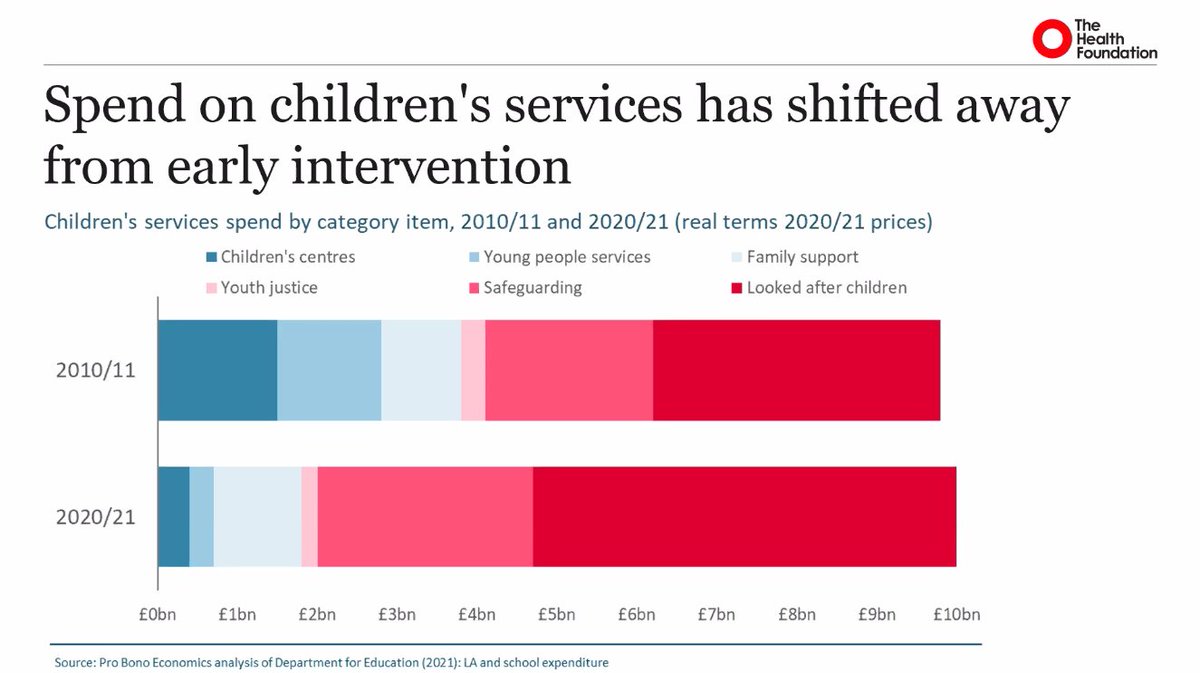
Turning to household incomes, finch notes that cuts to social security has "dragged down" incomes for poorer families before the pandemic, which will have had a negative impact on financial resilience before CV-19 & the cost of living crisis #BuildingResilience
Finch concludes expressing the need to a "prevention first approach". This will need a cross-government, long-term approach to improving health, with strategic planning and investment aimed at addressing the underlying causes of ill health & inequalities #BuildingResilience 
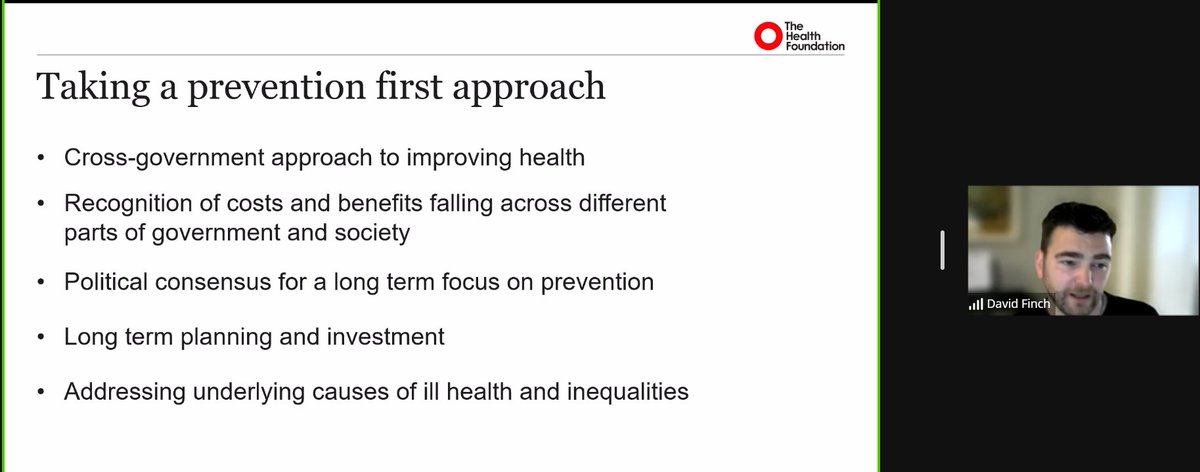
Next, @JonAshworth agrees with Bibby's observation that health inequalities is becoming a more salient media issue. Believes we are finally discussing prevention "as it is meant to be discussed", moving away to "Nanny State" towards improving people's lives #BuildingReslience
Ashworth also agrees on the need for a cross-departmental approach to prevention, noting that the challenge is "much broader" than the Department of Health #BuildingResilience
Looking at his own experience of moving from Shadow Health to Shadow DWP Minister Ashworth says it has "opened his eyes" to the siloed working of Westminster & how historically, DWP has focused on low-level skills & focus on punitive fines for not seeking work #BuildingResilience
Ashworth says that this needs to change to focus more on how we support people with ill-health into flexible, appropriate work placements. Welcomes Starmer's commitment to reducing health inequalities & outlines how a Labour Govt would reform work placement #BuildingResileince
Ashworth says he believes being in work is good for one's health - in particular noting the negative mental health impact on younger people. Proposes more flexible schemes to help people try work placements without risking benefits #BuildingResilience
On access for disabled people, Ashworth also proposes looking more at reasonable adjustments for those with accessibility needs. Also proposes greater devolution to CMAs of funding & powers to sculpt local employment schemes #BuildingResilience
Finally, Ashworth believes that health and work need to be "more closely incorporated". This will include expanding the Health & Work Unit to include other departments than DHSC & DWP; and trialling putting careers advice centres in healthcare settings #BuildingResilience
Dr @shabnabegum76 now speaks on how a focus on prevention will help achieve racial justice & a more sustainable & inclusive economy. Cites ONS data showing intersectionality of BAME communities & other determinants of ill health, such as areas of deprivation #BuillingResilience
Giving the example of mental health, Begum cites @RunnymedeTrust research which showed that women of colour often experienced poor mental health at work as a direct result of racial discrimination in the workplace, which exacerbates other economic inequalities #BuildingResilience
Begum argues that the #Coronavirus pandemic "brought into sharp relief" the health inequalities that non-white communities faced - including societal determinants such as poor diet, inadequate housing, and more likely to work in low-paid, public-facing jobs #BuildingResilience
Begum says that any prevention strategy must consider the racialised elements of poor determinants of health - focusing not just on physical health but also wider strategies on how and where we house specific communities #BuildingResilience
Finally, Begum says we also need to stop "shying away" from issues of race as determinants of poor health. Says it is currently often discussed as "coincidental" or "socioeconomic factors", which sometimes hides systemic racism that contributes to the outcomes #BuildingResilience
For example, Begum highlights that black men are more likely to experience poor mental health, but also are more likely to have negative experiences of being arrested by police under the Mental Health Act #BuildingResilience
Next @zoe_billingham agrees with Begum that the racial characteristics of communities that experience poor health, as well as the regional variances between communities. Highlights the IPPR Health & Prosperity Commission as work to address these issues #BuildingResilience
Billingham says it is "clear" that there is a link between lack of investment in public services and worsening regional health. Public Health, in particular, has been the remit of local govt for 10 years & has been at the sharp end of local authority austerity #BuildingResilience
Billingham concludes saying that there not only needs to be a cross-government approach to this, but also cross-party, with policymakers of all colours needing to have a "serious conversation" on what & how they are willing to fund prevention #BuildingResilience
Next @rcsloggett talks about his work on the Prevention Green Paper consultation which is now 1300 days w/o a Govt reply. Says when DHSC announced the paper, other depts expressed interest in getting involved, so appetite for cross-govt working "is there" #BuildingResilience
Sloggett welcomes proposals for a cross-government unit to drive the prevention agenda. Says that in order for this to have meaningful impact, it would need to be lead by a Prime Minister #BuildingResilience
Sloggett also expresses concern that the #Coronavirus pandemic has pushed health policy debate back to NHS funding. Argues there are lots of lessons to learn from the pandemic in terms of health inequalities & the importance of prevention #BuildingResilience
Looking at past administrations, Sloggett notes we have had many "stops & starts" on prevention due to political changes. Says the next Govt must focus on driving the agenda forward, not just on delivering at pace, but also on sustainability of funding #BuildingResilience
The webinar now moves on to a Q&A session #BuildingResilience
First Q is on public attitudes towards prevention, Begum says incorporating lived experience of communities is vital, but acknowledges this can be challenging amongst challenges with acute needs #BuildingResilience
Particularly on racial justice, Begum argues that certain communities will have experienced inequalities & discrimination in their youth, who are now seeing children & grandchildren experiencing those same challenges. Argues for bolder action #BuildingResilience
Ashworth argues that income inequality will be addressed not just from the provision of better paid jobs, but also improving workplace conditions - particularly focusing on burnout & mental health #BuildingResilience
With a Q on fairer regional funding flows, Billingham says the "doubly bad" impact of austerity has been that the places of greatest need have often experience the greatest levels of cuts #BuildingResilience
Billingham says that there is an argument to be made that investing in people to stay in good health in the first place is more efficient and better for people & the economy than tackling ill health #BuildingResilience
She calls for a more "logical" approach to funding public health - with a greater proportion of public health spending going towards those communities with greatest need #BuildingResilience
When asked on his comments, Sloggett says that these two approaches can be very complimentary - for example, the planning process creating healthier, more sustainable communities & technology empowering people to engage more with their own health #BuildingResilience
Sloggett also supports the "polluter pays" principle being incorporated more into health and prevention - for example, tobacco companies paying to help fund support for the negative impact of smoking & tobacco cessation programmes #BuildingResilience
Sloggett also argues that public health interventions tend to be popular with voters - however, this would need to be reframed as "support and enablement" rather than the govt "nannying" voters #BuildingResilience
Responding to a Q on Kier Starmer's mission, Ashworth says these missions will be cross-departmental. While DHSC will be the "lead" department, Ashworth stresses that there will certainly be cross-departmental engagement on health inequalities #BuildingResilience
Ashwoth gives examples of housing (MLUCH) as well as provision of active travel (DfT), adequacy of benefits (DWP) as well as clean air, clean water & wholesome foods (Defra) #BuildingResilience
With a Q on care commitments driving economic inactivity, Finch says this is a "complicated picture". While ill health the main driver of economic inactivity, the post-pandemic has seen some take early retirement #BuildingResilience
However, Finch says many people will have multiple reasons for leaving the workforce, a deeper dive needs to be done to see the impact of lack of social care provision impacting on people needing to take on caring commitments #BuildingResilience
Final Q is on making a stronger economic case for prevention. Billingham says there may be "blockers" with a prevention strategy meaning investing in future *AND* dealing with backlogs, but there is strong support & evidence to counter this "cost" argument #BuildingResilience
Panellists are asked what they would like to see done *today* to support the prevention agenda
- Sloggett: Levies on tobacco companies
- Ashworth: For Hunt to devolve benefit reform in the Budget
- Billingham: Restore public health budgets
#BuildingResilience
- Sloggett: Levies on tobacco companies
- Ashworth: For Hunt to devolve benefit reform in the Budget
- Billingham: Restore public health budgets
#BuildingResilience
- Begum: Using an intersectional & race equality lens on all prevention policies
#BuildingResilience
#BuildingResilience
Really interesting conversation on the economic case to invest in prevention. Thanks to @JonAshworth @shabnabegum76 @zoe_billingham @davidfinchthf & @rcsloggett for your insights, to @JoBibbyTHF for chairing & @HealthFdn for hosting! #BuildingResilience
• • •
Missing some Tweet in this thread? You can try to
force a refresh




